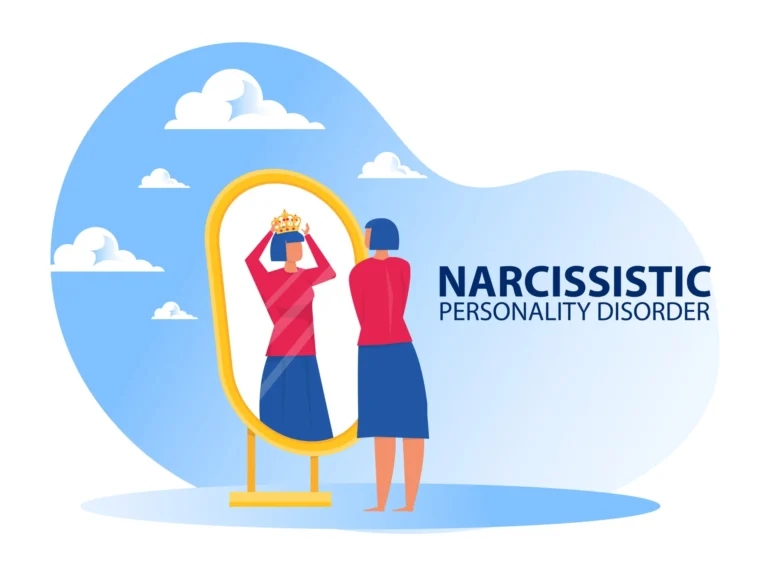Human psychology is complex, and while most people experience occasional emotional ups and downs, some individuals develop deeply ingrained patterns of thinking and behaving that affect their relationships and daily functioning. These are known as personality disorders. Among them, the figure of the narcista (narcissist) has gained significant attention, not only in psychology but also in everyday discussions about toxic relationships and emotional abuse.
Understanding narcissism in the broader context of the types of personality disorders helps us see how it fits within a spectrum of complex psychological conditions.
What Is a Personality Disorder?
A personality disorder is a mental health condition where a person has long-term patterns of thoughts, feelings, and behaviors that deviate significantly from cultural expectations. These patterns are rigid and unhealthy, often leading to difficulties in relationships, work, and self-identity.
Unlike temporary emotional struggles, personality disorders are persistent and deeply rooted, usually beginning in adolescence or early adulthood. People with these conditions often don’t recognize their behaviors as problematic, which makes treatment challenging.
Narcissism: A Closer Look
The narcissist is often portrayed as charming, confident, and ambitious—but beneath the surface lies a fragile self-esteem that depends on external validation. Narcissism exists on a spectrum, but at its extreme, it is recognized as Narcissistic Personality Disorder (NPD).
Key Traits of Narcissism:
- A grandiose sense of self-importance
- Preoccupation with success, power, or beauty
- A constant need for admiration
- Lack of empathy toward others
- Tendency to exploit relationships
- Intolerance of criticism or perceived failure
These traits make it difficult for narcissists to build healthy, balanced relationships. Often, those close to them experience manipulation, gaslighting, and emotional abuse.
Types of Personality Disorders
According to mental health research, personality disorders are generally divided into three clusters, each with distinct characteristics:
Cluster A: Odd or Eccentric Disorders
- Paranoid Personality Disorder: Extreme distrust and suspicion of others.
- Schizoid Personality Disorder: Preference for isolation and limited emotional expression.
- Schizotypal Personality Disorder: Unusual beliefs, eccentric behavior, and discomfort in social situations.
Cluster B: Dramatic, Emotional, or Erratic Disorders
This cluster includes narcissism and is often the most disruptive in relationships.
- Antisocial Personality Disorder: Disregard for laws, rules, and the rights of others.
- Borderline Personality Disorder: Instability in mood, relationships, and self-image.
- Histrionic Personality Disorder: Excessive emotionality and need for attention.
- Narcissistic Personality Disorder: A grandiose self-image paired with lack of empathy.
Cluster C: Anxious or Fearful Disorders
- Avoidant Personality Disorder: Extreme sensitivity to criticism and social inhibition.
- Dependent Personality Disorder: Excessive reliance on others for decision-making and care.
- Obsessive-Compulsive Personality Disorder (OCPD): Preoccupation with order, rules, and control (different from OCD).
By exploring these types of personality disorders, we can better understand that narcissism is just one piece of a larger psychological puzzle.
How Narcissism Affects Relationships
Living with or working alongside a narcissist can be emotionally draining. Common patterns include:
- Blame Shifting: Refusing accountability by projecting faults onto others.
- Gaslighting: Manipulating others to question their own reality.
- Exploitation: Using others for personal gain without remorse.
- Control Dynamics: Maintaining dominance through criticism or intimidation.
Such behaviors can lead to long-term emotional distress, low self-esteem, and confusion in those affected.
Recognizing and Coping With Narcissistic Behavior
If you suspect someone in your life is narcissistic, it’s important to recognize the signs early. Some coping strategies include:
- Setting Boundaries: Be clear about what behavior you will not tolerate.
- Avoiding Emotional Traps: Don’t engage in unnecessary arguments—they thrive on conflict.
- Focusing on Self-Care: Prioritize your mental health through supportive relationships and self-compassion.
- Seeking Professional Guidance: Therapy can help victims rebuild confidence and establish healthier coping mechanisms.
Treatment and Outlook
Personality disorders, including narcissism, are challenging to treat because individuals often lack awareness of their condition. However, with professional therapy—especially approaches like cognitive-behavioral therapy (CBT) or dialectical behavior therapy (DBT)—progress is possible.
The goal is not to “cure” personality disorders but to manage symptoms, improve relationships, and reduce harmful behaviors.
Conclusion
A narcista represents just one face of the wide range of personality disorders. By learning about the different types of personality disorders, we gain a clearer understanding of how deeply rooted psychological patterns shape human behavior.
Awareness empowers individuals to recognize toxic dynamics, set boundaries, and seek professional help when necessary. While these conditions are complex and challenging, knowledge is the first step toward healing—for both those who struggle with personality disorders and those affected by them.
